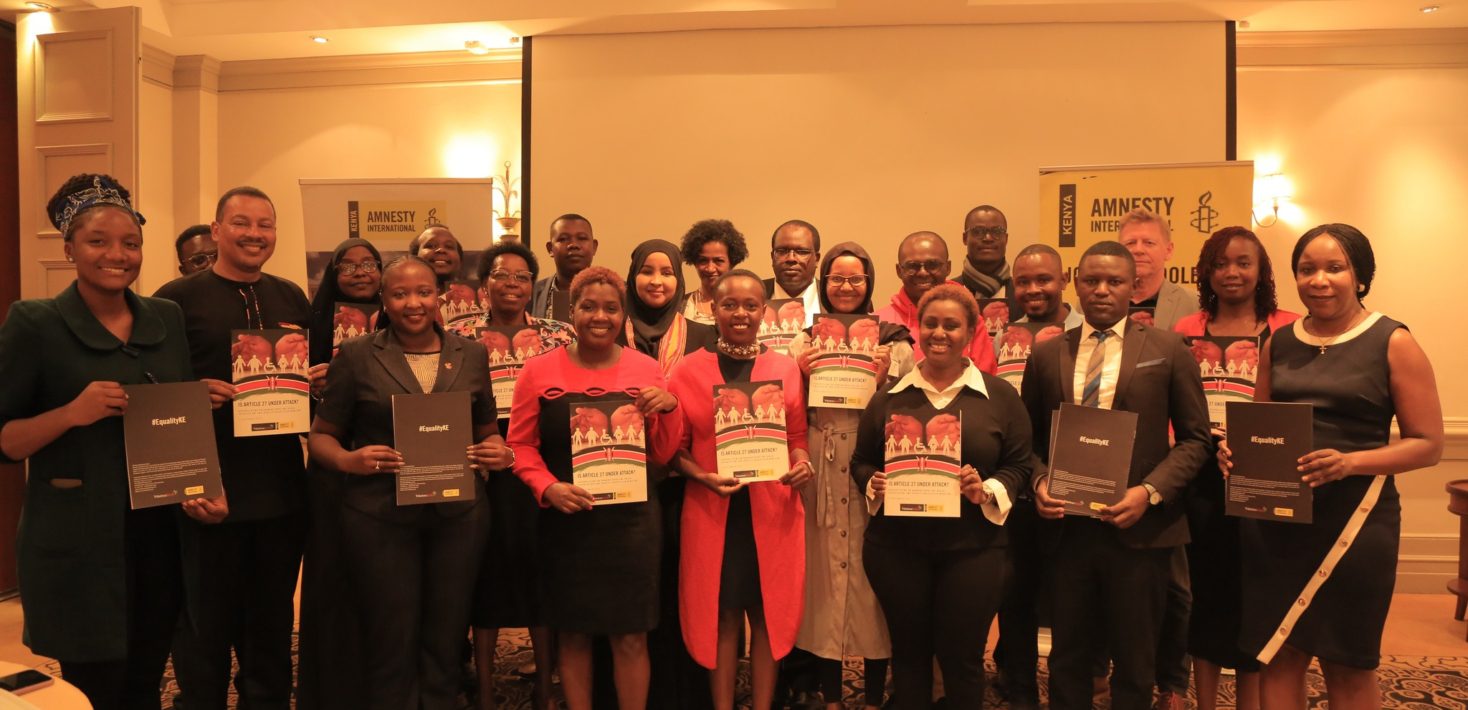Nairobi, 30th November 2023: Two weeks before the 60th anniversary of Kenyan independence and 75 years after the Universal Declaration on Human Rights, Amnesty International Kenya and Tribeless Youth commissioned InfoTrak Research Consulting to conduct an identity-based poll to shed light on the pervasive issue of discrimination in Kenya. The poll, conducted between 10th and 15th November, sampled over 3000 Kenyans from all 47 counties. We commend the finding that 69% of Kenyans identify themselves primarily based on their nationality first before their tribes and religion. This highlights a strong sense of national identity among the populace. We call on leaders to foster more grounds that unite Kenyans and promote national unity, democracy, and participation of the people.
We are concerned that despite the constitutional protections under Article 27, discrimination based on identity is still deeply rooted in the country. Nearly half of Kenyans (49%) report direct experiences of discrimination based on one or more of their identities. Disturbingly, the most vulnerable groups include LGBTI persons (75%), individuals from northeastern counties (62%), those aged 35-39 (55%), and residents of urban cities and towns (51%).
The poll identifies the poor (22%), youth (17%), persons with disabilities (15%) and the elderly (11%) as the least protected vulnerable groups in Kenya today. The workplace emerged as the most unsafe space in Kenya (60%), followed by the home (15%) and places of worship (6%). While 58% reported feeling bad or sad (24%) after being discriminated against, only 13% felt angry, 51% ignored the discrimination and took no action. Only 11% felt comfortable enough to approach government authorities for justice, and 42% confronted their perpetrators.
Additionally, 38% of Kenyans feel that further public awareness would arrest identity-based discrimination. Another 26% call for further legislation, stakeholder engagement (14%), community prevention strategies (12%), and promoting inclusivity (11%). However, 57% of Kenyans do not want the state to regulate intimate relationships between Kenyan adults.
Amnesty International Kenya and Tribeless Youth calls on Parliament to review current gaps and harmonise all laws that seek to give full effect to the provisions of Article 27 of the Constitution and reject legislation that seeks to criminalise any group based on their identity. The National Council on Administration of Justice should review all laws and ensure they align with constitutional provisions on equality and non-discrimination. We also call upon the National and county Governments to introduce workplace regulations and standards that increase workplace diversity, equity, and inclusion nationally.
We stress the importance of clear reporting and oversight mechanisms in the implementation of protections against discrimination. We call upon the government of Kenya to sign the optional protocols to the International Covenant on Civil and Political Rights, the International Covenant on Economic, Social and Cultural Rights, the Convention on the Elimination of All Forms of Discrimination against Women and the United Nations Convention on the Rights of Persons with Disabilities to allow for committee supervision and implementation of these conventions. Non-ratification of these instruments enhances high levels of discrimination.
Irungu Houghton
Executive Director
Amnesty International Kenya
For more information and interviews, contact Mathias T. Kinyoda on Mobile: +254723424802Email: [email protected]
Click on the button below to download the report.


